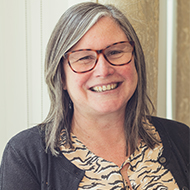Leave fawns in the wild, public urged
Taking healthy fawns could be ‘death sentence’ for them, warns SSPCA.
The Scottish Society for the Prevention of Cruelty to Animals (Scottish SPCA) has urged the public not to remove fawns from the wild, following a concerning case last week.
The animal welfare charity tried to make contact with a member of the public who had taken home a healthy fawn. The person refused to reveal their location and claimed that they were able to look after the animal as they had read advice online.
It is believed that the fawn is being kept in close proximity to a dog, which could add to its stress.
Does will sometimes leave their fawns hidden in long grass or beneath bushes while they look for food. This can lead to members of the public mistakenly thinking that they have found an abandoned fawn which needs help. In such cases, it is best to wait to see if the mother returns.
Assistant manager of the Scottish SPCA’s National Wildlife Rescue Centre, April Dodds said: “We are still seeing a number of fawns which have arrived at the centre where they have been removed from the wild for no reason. Removing fawns from their natural habitat can only do harm if they are an otherwise healthy animal with a mother.
“The public may think this is not a serious issue as the animals can be cared for by the Scottish SPCA but fawns are possibly the most complex and challenging animal we deal with at the National Wildlife Rescue Centre. In many cases removing that young animal from the wild is effectively a death sentence.”
However, there are times when it is necessary for the public to seek help when they see a fawn in distress.
Ms Dodds added: “If you spot a fawn who is walking around and calling out, they may need help. Monitor the fawn from a distance for a few hours, allowing the mother to come in and feed it if she has left the area. If no mother returns to feed the fawn, then please call our animal helpline for advice on 03000 999 999.”






 The Federation of Independent Veterinary Practices (FIVP) has announced a third season of its podcast, Practice Matters.
The Federation of Independent Veterinary Practices (FIVP) has announced a third season of its podcast, Practice Matters.
